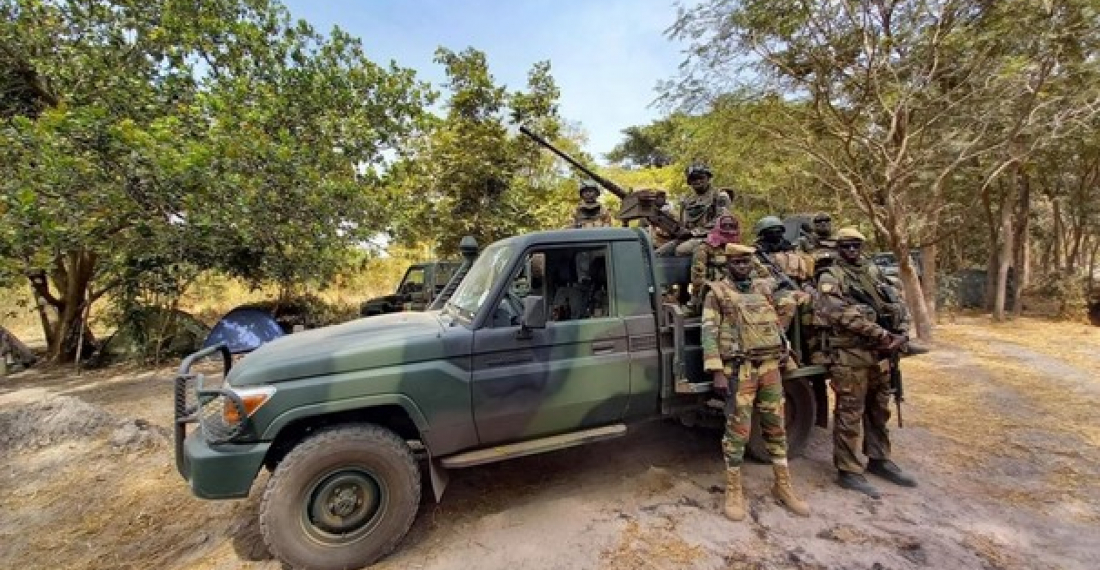On 13 March 2022, the Senegalese military launched an operation against rebels fighting for independence in the Casamance region, a Senegalese southern region which borders Gambia.
Since the clashes began near the Gambian border, more than 6,000 people have fled their homes along the Senegalese border into southern Gambia.
In a statement issued on Tuesday 22 March, the National Disaster Management Agency (NDMA) in the Gambia reported the arrival of 691 people from Casamance to the Gambia, a small nation of 2 million people almost fully enveloped by Senegal.
Gambia's crisis management agency also reports 5,626 internally displaced persons or refugees within the Gambia itself after Senegalese bullets landed in border villages.
In light of recent events, the Gambian agency is calling for urgent humanitarian assistance.
On the Senegalese front, one soldier has been killed, and eight others wounded since the operation to dismantle the bases of the Movement of Democratic Forces of Casamance (MDFC) began on 13 March 2022, according to the Senegalese army.
The primary objective of the Senegalese state is to weaken the separatist movement by undermining their main source of funding: the smuggling of wood and cannabis concentrated between Senegal and Gambia. The proximity to southern Senegal of Guinea-Bissau, one of the hubs of drug trafficking between Latin America, Europe and the United States, has for a long time enabled the financial survival of the Casamance secessionist movement, according to Jean-Claude Marut, researcher and Casamance conflict specialist.
This conflict, is one of the longest-running on the African continent as it began in 1982, but had been largely dormant since the 2014 ceasefire. However, recent attacks, such as the one two months ago, when four Senegalese soldiers died, and 7 others were temporarily captured by MFDC fighters, have reignited a conflict that risks adding to the more than 2.1 million people who have fled their homes since 2013 in the Sahel region due to the growing terrorist threat.
The representatives of the secessionist cause, under the aegis of their leader Salif Safio, have since the start of negotiations in Rome in 2012 insisted on independence. The Senegalese state on the other hand is still sticking to its position that everything is negotiable, except independence. This lack of compromise is causing a diplomatic blockage.
Nevertheless, since the death of former Gambian president Yaya Jammeh five years ago, a sponsor of the Casamance rebellion, the MFDC and his leader Salif Sadio have been weakened militarily and politically.






